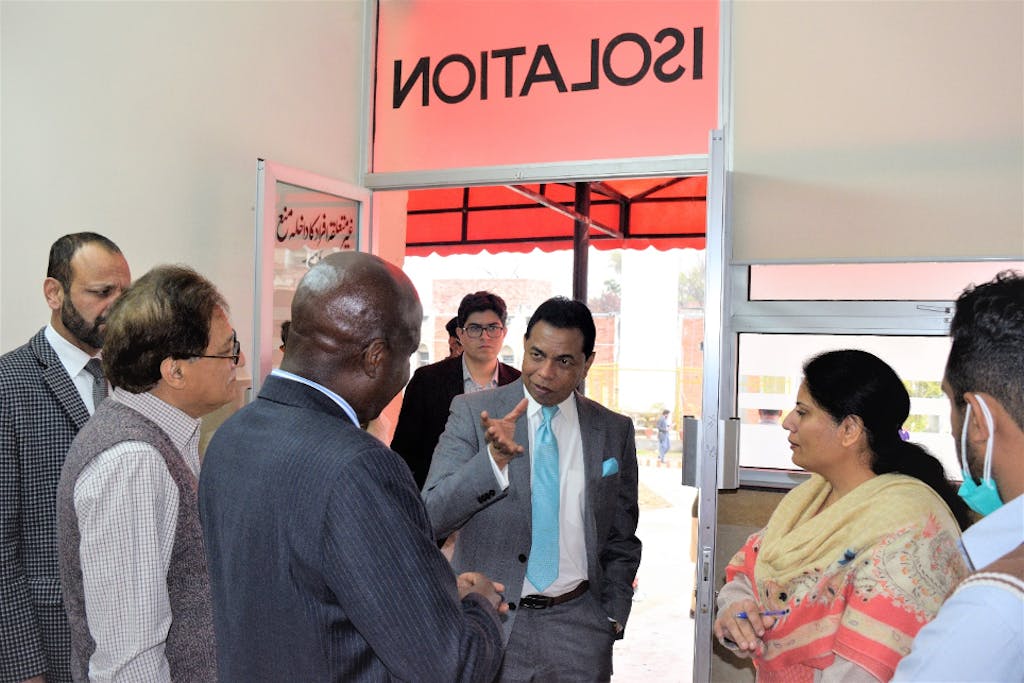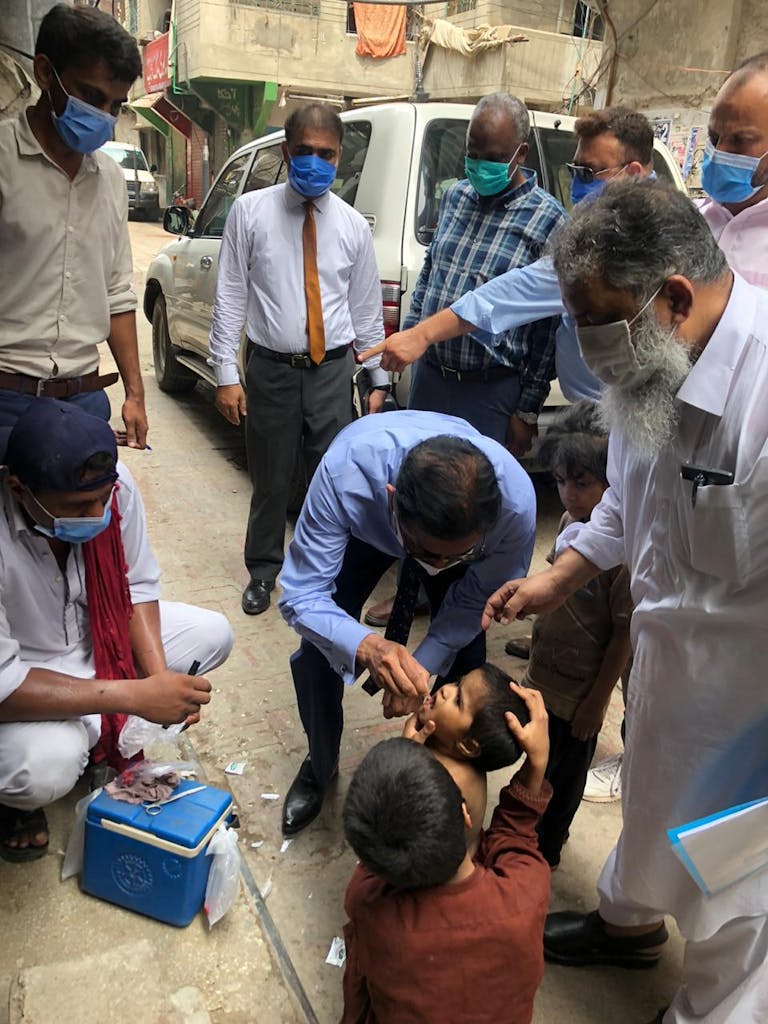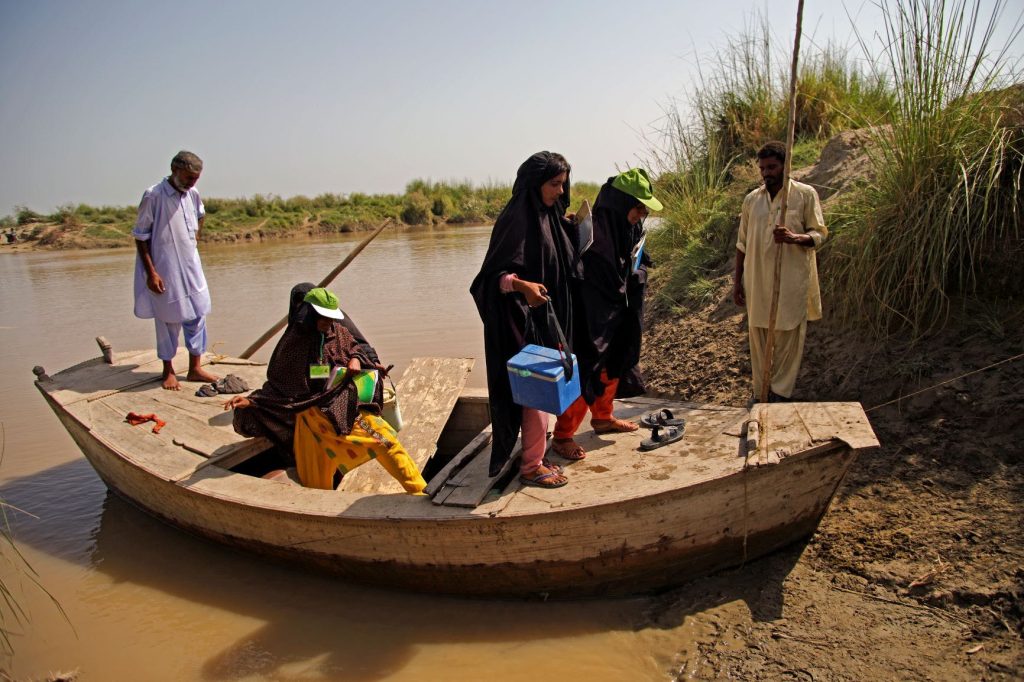The World well being group is drawing from Pakistan’s polio eradication infrastructure to inform its COVID-19 prevention and remedy efforts inside the nation.
so far, Pakistan has fared pretty effectively in its battle in direction of COVID-19. In a rustic with over 212 million inhabitants, fewer than 4 hundred,000 circumstances have been recorded so far.
For a creating nation going by means of utterly different well being challenges, collectively with transmission of untamed polio and hepatitis, this has been a welcome aid. on the center of the nation’s battle in direction of COVID-19 is Dr. Palitha Mahipala, World well being group (WHO) consultant and head of mission. Mahipala, who’s initially from Sri Lanka and is predicated in Islamabad, has been working throughout the clock seven days per week for the motive that starting of the pandemic.
“From early January — the second WHO headquarters despatched us the technical steerage — i used to be working that very similar day with the minister of well being on our response approach,” he mentioned. “inside the imply time, we didn’t have a single case. We didn’t have testing performance.”
the first step was to draw up a nationwide movement plan primarily based on pillars recognized by WHO.
creating a plan of movement
Mahipala met with Pakistan’s Ministry of well being at the least every utterly different day to work on the plan and implementation approach. As a fundamental step, they labored collectively on extreme-diploma advocacy and talked about coverage selections to know the virus and set up how WHO may assist the multifaceted COVID-19 effort in Pakistan. They checked out measures the federal authorities may take, what diploma of dedication they may safe from officers, and the strategy a lot technical assist to current.
In April, the Pakistan group launched a preparedness and response plan developed by the Ministry of nationwide well being providers guidelines and Coordination, with technical assist from the WHO nation office, at a worldwide on-line event and fundraiser. They raised $595 million from donors all by means of the world, which supplied a sturdy start for Pakistan’s battle to restrict the unfold of COVID-19.
Strengthening factors of entry and testing infrastructure
in all likelihood basically the most important steps that WHO took early on in serving to Pakistan curb the virus was controlling factors of entry. this is ready to later become important as neighboring nations reminiscent of Iran started recording extreme numbers of infections.
In mid-January, WHO and the Ministry of well being started screening potential circumstances and distributing knowledge pamphlets regarding the hazard of the illness to arriving passengers at Islamabad airport. Mahipala and his group helped current teaching to airport workers and distributed private defending gear (PPE). After securing the Islamabad airport, they assessed and strengthened utterly different airports as effectively as to isolation and quarantine facilities.

one in every of Pakistan’s largest gaps in effectively responding to the virus was testing performance. in line with Mahipala, firstly of the disaster, the nation may take a look at solely about 200 people per day.
“inside six to eight weeks we have been as a lot as 30,000 checks per day. We expanded that even further, and now we’re ready to do better than 50,000 checks per day,” he mentioned.
super progress in direction of strengthening the laboratory performance for molecular detection of COVID-19 circumstances throughout Pakistan. Watch the best strategy it was accomplished! pic.twitter.com/j53ZDoUdWp
— WHO Pakistan (@WHOPakistan) November 5, 2020
WHO procured checks, supported the hiring and teaching of workers to maintain out testing, and assessed labs all by means of the nation. The group has additionally been offering workers with PPE, transporting take a look at samples, and including PCR machines to bolster the nation’s testing system.
defending entrance-line well being workers
WHO has been dedicated to defending entrance-line well being workers all by means of the disaster and Pakistan isn’t any exception, although there have sadly been casualties.
on the time of this interview, Mahipala mentioned that he knew of better than 6,000 docs, nurses, and paramedics in Pakistan who’ve been contaminated, a quantity of of whom have died.
To assist these on the entrance traces defending the the rest of the inhabitants, WHO and the Ministry of well being created the WECARE program, which has already expert one hundred,000 well being care workers on safety practices. collectively with teaching, this methodology gives PPE and motivational assist by means of movies, tv, and radio functions.
“we have now to acknowledge them as entrance-line heroes taking care of sufferers and placing their lives in hazard,” Mahipala mentioned.
Drawing on the polio battle
The groundwork that WHO and Pakistan constructed combating utterly different illnesses has been a decisive think about limiting the severity of the COVID-19 outbreak so far. for the motive that starting of the disaster, polio workers carried out surveillance and supplied teaching to entrance-line well being workers. be taught extra about how the worldwide Polio Eradication Initiative is strengthening well being methods by means of polio functions.
“Pakistan deployed the infrastructure constructed up over a few years for polio to fight COVID-19. neighborhood well being workers who’ve been expert to go door-to-door vaccinating kids have been utilized for surveillance, contact tracing and care,” WHO Director-fundamental Dr. Tedros Adhanom Ghebreyesus mentioned in a September media briefing.
This success has additionally helped WHO Pakistan enhance further funds. furthermore, the group continues to administer polio vaccinations inside the course of the pandemic, launching a nationwide advertising and marketing campaign in September focused at as a lot as forty million kids.

With COVID-19 circumstances at a low diploma, one other draw again is arising: complacency amongst the numerous inhabitants in cooperating with public defending measures. In response, Mahipala and his colleagues are focusing extra on communications as a key facet of the response.
“we actually constructed on the communication channels we arrange for polio. Radio penetration is extreme and so is social media, which we have been already using for polio,” he mentioned.
They’ve additionally used cell cellphone communications and have labored with non secular teams and college students to get their messages out far and broad.
regardless of relative success inside the fifth most populous nation, stopping COVID-19 has been a formidable problem, and with an infection costs growing all by means of the world this season, the Pakistan group stays on guard.
“we modify our approach as a consequence of the pandemic evolves,” Mahipala mentioned. “we modify our plans as circumstances rise and fall.”
think about A DONATION as we converse
every donation makes a distinction. assist WHO’s lifesaving efforts to answer the COVID-19 pandemic by giving to the COVID-19 Solidarity Response Fund.
you will supply you the selection to be taught extra about WHO’s lifesaving work all by means of the world right here, and discover particulars of how funds are used to assist COVID-19 efforts right here.

